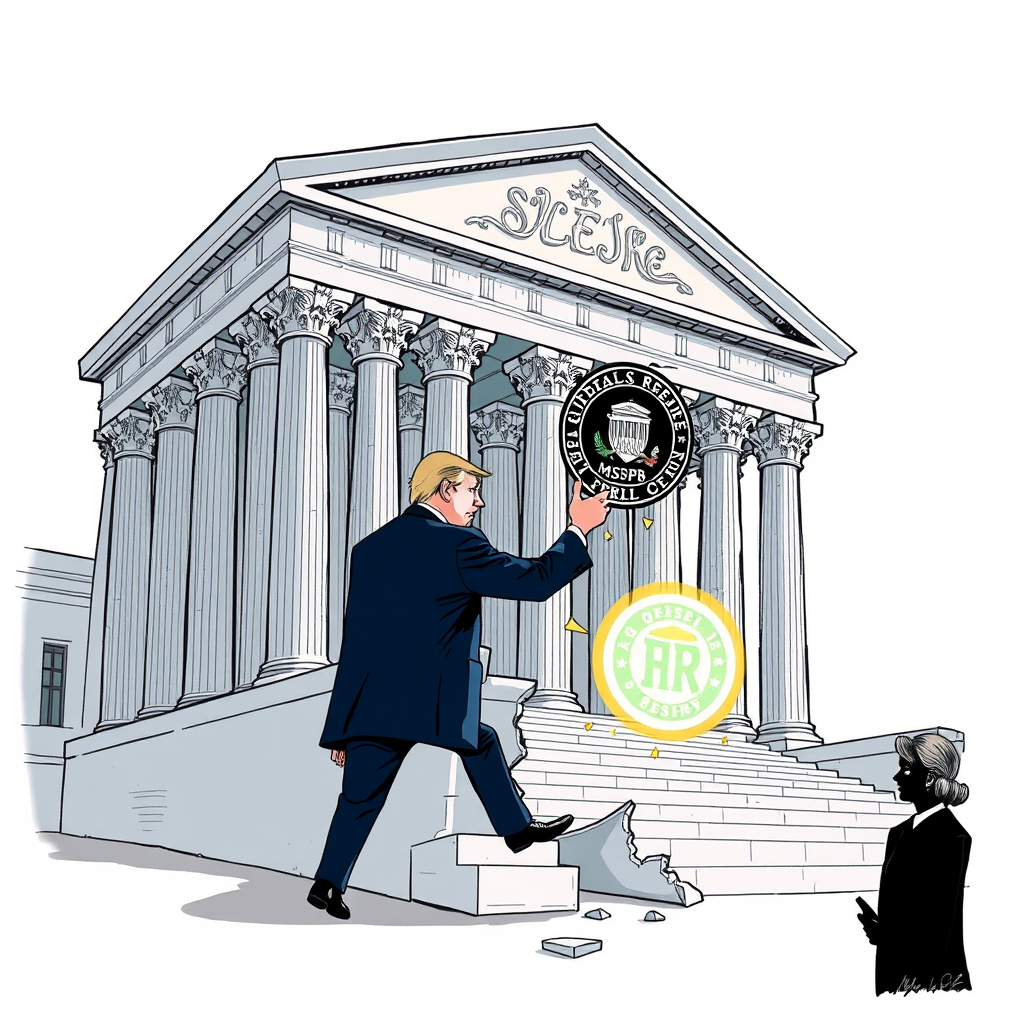Supreme Court Decision Backfires, Warns Analyst

The U.S. Supreme Court’s recent decision allowing former President Donald Trump to remove members of two federal boards, issued via its emergency “shadow docket,” is drawing sharp criticism from legal experts who suggest the court has severely undermined its own authority. The 6-3 ruling permitted Trump to fire a member of the National Labor Relations Board and another from the Merit Systems Protection Board, despite lacking a full hearing on the merits of the case – a move critics deem legally questionable.
Legal journalist Mark Joseph Stern, previewing Slate’s “Amicus” podcast, characterized the decision as a “rubber-stamp” approval of illegal actions, arguing it empowers Trump to disregard legal boundaries, particularly in areas where the court is willing to acquiesce. Stern posits a dangerous precedent: that Trump may feel emboldened to ignore future rulings, citing the court’s prior leniency as justification.
The ruling contains a peculiar exception, inexplicably shielding Federal Reserve Chair Jerome Powell from removal. Stern suggests this was a calculated move, a veiled threat from the court to Trump: comply with monetary policy norms, or risk a takeover of the Fed. The hastily added clause, stating the decision doesn’t apply to the Federal Reserve, appears legally flimsy and lacks coherent justification, according to Stern, who points out the arbitrary distinctions made between the Fed and other independent agencies.
Attorney Dahlia Lithwick characterized Justice Elena Kagan’s dissent as a warning that the majority is handing a victory to someone demonstrably willing to flout the law.
This decision feels particularly damaging because it wasn’t reached through the typical, deliberative process of the court. The “shadow docket” – issuing rulings on emergency requests without full briefing or oral arguments – is increasingly concerning. While sometimes necessary, its overuse risks eroding public trust and creating the perception of a politically motivated court. The court’s willingness to grant such a significant concession to a former president, especially one with a history of challenging legal norms, raises serious questions about its long-term credibility and its ability to effectively check executive power. The exception for Powell, while perhaps strategically intended to protect the economy, only exacerbates the appearance of a deal being struck, rather than a principled legal ruling. It’s a self-inflicted wound that could have lasting consequences for the court’s authority and the rule of law.